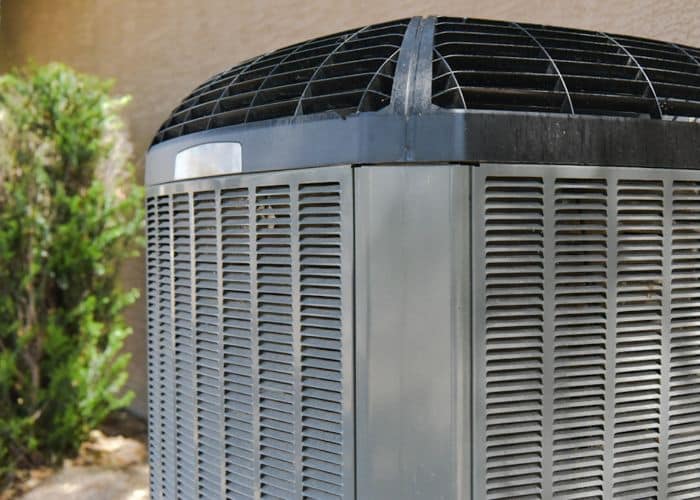10 Signs Your HVAC System Needs Repair
10 Signs Your HVAC System Needs Repair: A Sacramento Homeowner's Guide

Maintaining a comfortable indoor environment is crucial, especially in regions like Sacramento where extreme temperatures are not uncommon. Your HVAC (Heating, Ventilation, and Air Conditioning) system plays a pivotal role in keeping your home cozy during winter and cool during scorching summers. However, like any mechanical system, your HVAC unit can encounter issues over time. Recognizing the signs of HVAC problems early can save you from costly repairs and ensure your comfort year-round. In this guide, we’ll explore ten telltale signs that indicate your HVAC system might need repair.
1. Unusual Noises:
Your HVAC system should operate quietly in the background. If you notice unusual sounds such as grinding, banging, or squealing, it’s a clear indication of underlying issues. These noises could stem from loose components, worn-out belts, or motor problems. Ignoring these sounds can lead to further damage and eventual system failure.
2. Poor Airflow:
Inadequate airflow from your vents is another common sign of HVAC trouble. Reduced airflow can result from clogged air filters, blocked ducts, or malfunctioning blower motors. Restricted airflow not only compromises comfort but also forces your system to work harder, leading to increased energy consumption and higher utility bills.
3. Fluctuating Temperatures:
Inconsistent temperatures throughout your home suggest that your HVAC system is struggling to maintain its set temperature. This could be due to a faulty thermostat, duct leaks, or compressor issues. If you find yourself constantly adjusting the thermostat to no avail, it’s time to have your HVAC system inspected by a professional.
4. Foul Odors:
Unpleasant odors emanating from your vents indicate potential mold growth, bacteria buildup, or burning components within your HVAC system. Musty smells could indicate mold or mildew in the ductwork, while burning odors might signal electrical problems or overheating components. Addressing these odors promptly is essential for maintaining indoor air quality and preventing health issues.
5. Increased Energy Bills:
A sudden spike in your energy bills without any corresponding increase in usage could point to inefficiencies within your HVAC system. As components wear out or become faulty, your system must work harder to maintain desired temperatures, leading to higher energy consumption. Regular maintenance and timely repairs can help optimize your HVAC system’s efficiency and lower your utility bills.
6. Constant Cycling:
Frequent cycling on and off, known as short cycling, is a sign of HVAC system distress. Short cycling not only puts unnecessary strain on your system but also reduces its lifespan. Common causes of short cycling include thermostat issues, refrigerant leaks, or oversized HVAC units. Addressing this issue promptly can prevent further damage and ensure optimal performance.
7. Leaking or Moisture Buildup:
Leaks or moisture accumulation around your HVAC unit or ductwork should never be ignored. Water leaks can lead to mold growth, structural damage, and electrical hazards. Condensation or pooling water near your indoor or outdoor unit could indicate refrigerant leaks, clogged drain lines, or malfunctioning components. Promptly addressing leaks can prevent costly water damage and maintain your system’s efficiency.
8. Excessive Dust or Debris:
If you notice a buildup of dust or debris around your vents or on your indoor unit, it could indicate problems with your HVAC system. Dirty air filters, duct leaks, or malfunctioning components can contribute to excessive dust accumulation. Not only does this affect indoor air quality, but it also hampers your system’s performance. Regular HVAC maintenance, including filter replacement and duct cleaning, can mitigate this issue.
9. Age of the System:
The age of your HVAC system is a significant factor in determining its reliability and efficiency. Most systems have a lifespan of around 10 to 15 years, depending on maintenance and usage. If your system is nearing or exceeding this timeframe, it’s more susceptible to breakdowns and inefficiencies. Consider investing in a new, energy-efficient system to avoid frequent AC repairs and reduce energy costs in the long run.
10. Lack of Maintenance:
Regular air conditioner maintenance is essential for keeping your HVAC system running smoothly. Neglecting routine inspections, filter changes, and tune-ups can lead to premature wear and tear, decreased efficiency, and costly repairs. Scheduling annual maintenance with a qualified HVAC technician can help identify and address potential issues before they escalate, ensuring optimal performance and prolonging your system’s lifespan.
Your Sacramento HVAC system plays a vital role in maintaining a comfortable indoor environment year-round. Recognizing the signs of HVAC problems early can save you from discomfort, inconvenience, and costly repairs down the line. Whether it’s unusual noises, poor airflow, or increased energy bills, addressing these issues promptly can prevent further damage and ensure your system operates efficiently. By staying vigilant and investing in regular maintenance, you can extend the lifespan of your HVAC system and enjoy uninterrupted comfort in your Sacramento home.
